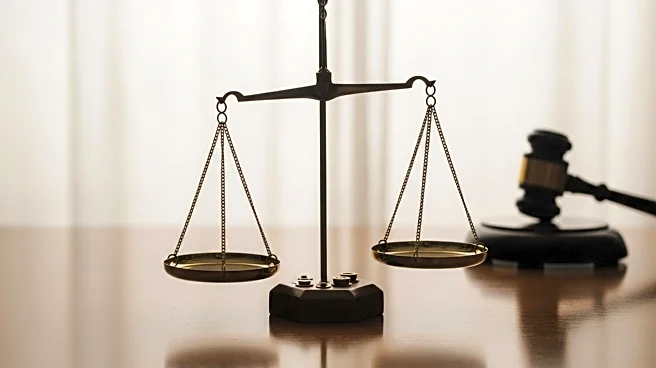What is the story about?
What's Happening?
The Supreme Court has rejected Laura Loomer's appeal in her lawsuit against social media companies, marking her fourth unsuccessful attempt to challenge her bans from platforms like Facebook and X. Loomer, known for her provocative statements and conspiracy theories, claimed that these companies conspired with advertisers to block her posts during her congressional campaigns in 2020 and 2022. Her lawsuit was based on the Racketeer Influenced and Corrupt Organizations Act (RICO), but both a federal judge and the 9th U.S. Circuit Court of Appeals dismissed her claims, stating she had no plausible argument under RICO. The Supreme Court's decision not to hear the appeal effectively upholds these dismissals.
Why It's Important?
The Supreme Court's decision reinforces the legal precedent that social media companies can regulate content on their platforms without facing RICO-related lawsuits. This ruling is crucial for maintaining the autonomy of social media companies in content moderation, which is essential for managing harmful or violent content. The decision also highlights the challenges faced by political figures in leveraging social media for campaigns, especially when banned for violating platform policies. It underscores the importance of understanding legal boundaries in digital communication and the implications for political strategy.
What's Next?
With the Supreme Court's rejection, Loomer may need to reconsider her legal strategy or focus on alternative methods to address her concerns with social media platforms. The decision could lead to increased discussions among policymakers about the need for reforms to Section 230, which provides immunity to social media companies. As debates over content moderation continue, social media companies may face pressure to clarify their policies and ensure fair enforcement. Loomer's case may also influence future legal challenges related to platform bans and content regulation.
Beyond the Headlines
The case raises important questions about the intersection of free speech, political campaigning, and digital platform regulation. It highlights the ethical considerations of allowing platforms to control political discourse and the potential impact on democratic processes. The decision may prompt further examination of the role of social media in shaping public opinion and the responsibilities of these companies in maintaining a balanced and fair digital environment.















